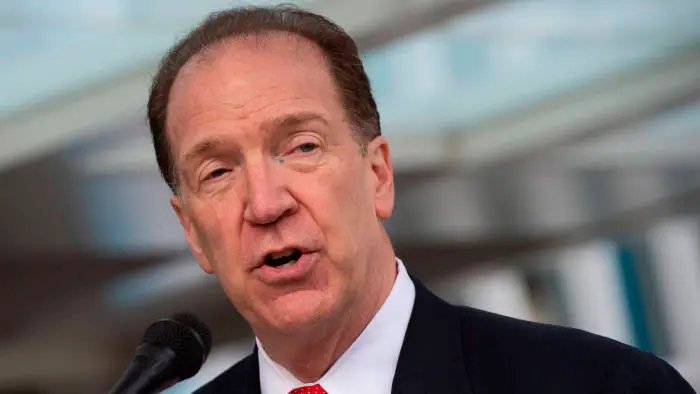The World Bank Group has announced that over the coming weeks it will be discussing with its Governors and Board of Executive Directors a 15-month crisis response financing package of around $170 billion to help countries address multiple overlapping crises.
Of this, the Bank Group is working to provide an initial crisis response of around $50 billion by June 30, 2022.
The response also includes analytical work and policy advice at the country, regional, and global levels to inform well-targeted crisis and medium-term interventions.
“Developing countries are facing multiple overlapping crises, including the pandemic, rising inflation, Russia’s invasion of Ukraine, large macroeconomic imbalances, and energy and food supply shortages. These are causing massive reversals in poverty reduction, education, health, and gender equality,” said World Bank Group President David Malpass.
“The World Bank Group will respond to these crises with impact, speed, and scale”, he added.
The World Bank Group has presented to its Governors and Board of Executive Directors a Crisis Roadmap, which will outline the initial fast-track response and possible next steps. This will be followed by a more detailed proposal to be presented to the Bank’s Board by the end of June.
This surge response follows the World Bank Group’s fast, comprehensive action to help countries address the COVID-19 crisis, with over $200 billion committed between April 2020 and March 2022 to fight the health, economic, and social impacts of the pandemic. This response included more than $73 billion of International Development Association (IDA) resources on grant and highly concessional terms.
The war in Ukraine is provoking a rapidly expanding global crisis, with the economic and social impacts spreading through commodity markets, trade, financial flows, and impacting market confidence. The surging cost of food, fuel, and fertilizer is increasing hunger, malnutrition, food insecurity, and hardship for millions of poor people around the world. These hardships will exacerbate the existing effects of the ongoing pandemic, on top of fragility in many countries, the effects of climate change, and already severe poverty, inequality, and other development setbacks.
If protracted, the impacts of the war in Ukraine could also lead to lasting fragmentation of global trade and foreign investment networks – channels that have historically played a central role in supporting global economic growth and poverty reduction.
While addressing the social and economic impacts arising from the war in Ukraine, the World Bank Group will continue to maintain its focus on protecting the poor and vulnerable, boosting the response capacity of developing countries, and restoring momentum on longer-term development priorities, that include addressing the pandemic, situations of fragility, conflict and violence and its commitment to the climate agenda.

